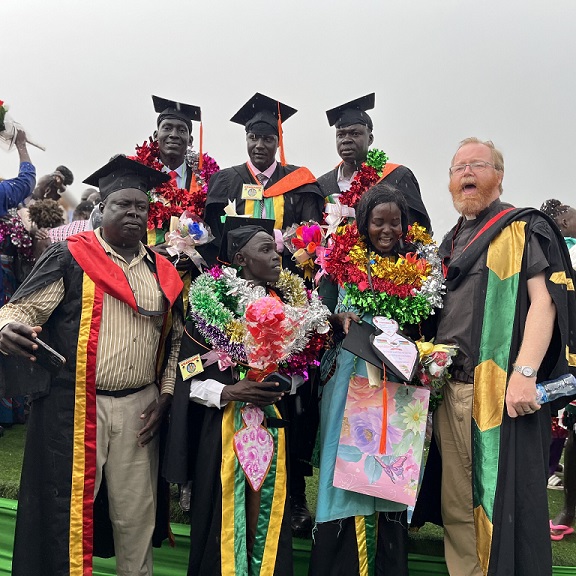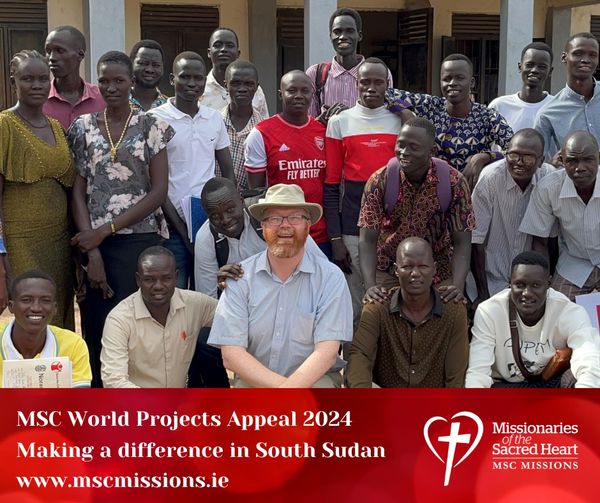MSC International, South Sudan, a story from Alan Neville MSC, Ireland

Malaria
On Sunday evening I was getting ready for the week ahead, planning for the work in the University and the schools, when I began to feel unbearably cold. A quick check with one of our nurse practitioners confirmed my suspicions. I had my first bout of malaria. If you haven’t had it, it’s difficult to accurately describe. Your fever alternates between being roasting hot and then freezing cold. It’s bizarre to ever think you will end up shaking with the cold, in bed with two blankets, when the room temperature is well into the 30C, but there I was. Thankfully the Sisters moved me into the Convent to keep an eye on me. Hardly necessary in my opinion, as all the world knows how easy Irish men are as patients. You’d hardly think we were sick at all! I was thankful for their care by the time I finished.
Anyway, aside from fever, there are headaches, body aches, nausea, and lots of other things that are perhaps not fit to print. The vivid dreams were something of a shock. In one in particular I found myself at a Eucharistic Congress in a large stadium, when a runaway train barrelled through the proceedings. I hopped on for fun, managed to avoid hitting three trams, before eventually crashing the train just outside a Spar in Ireland. The manager came out to thank me, took my photo, gave me flowers and chocolate, and then charged me for both of them, which I thought was a bit much.
Now, rambling, nonsensical vivid dream aside, the harsh reality is that malaria is easily one of the main causes of child death in our area. It always bothered me that at the end of the first year pandemic we had six or seven viable vaccines available. Malaria kills over 600,000 people a year, but still we are waiting on a vaccine. Simply put, rich people don’t get malaria, so there is not impetus to find a cure in the same way we came together to tackle Covid. The part of malaria that is most responsible for deaths is the fever. Young children often don’t have the strength to deal with the high temperatures, but all that is needed to reduce their temperature is a simple paracetamol.
It took five days for me to get over my first experience of malaria. I was lucky to have a clinic nearby, access to medication, and a caring community. Not everyone is. That is why the work of not just the school, but the clinic here is indispensable. Life has its highs and lows, and as we give thanks for one, we must remind ourselves to work to help those in the other. That is what Christ demands of us. Nothing less will do.
